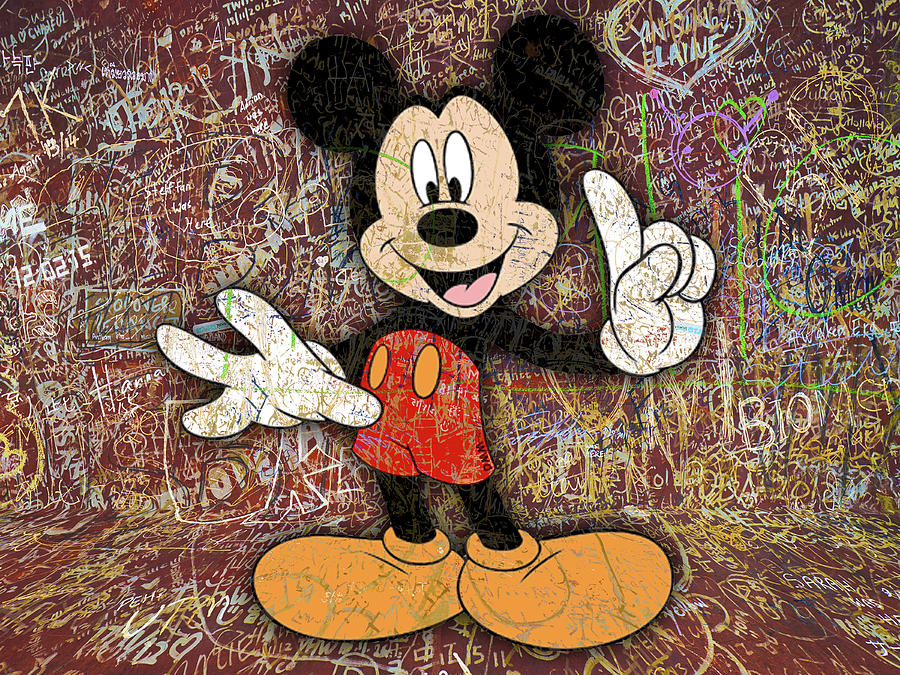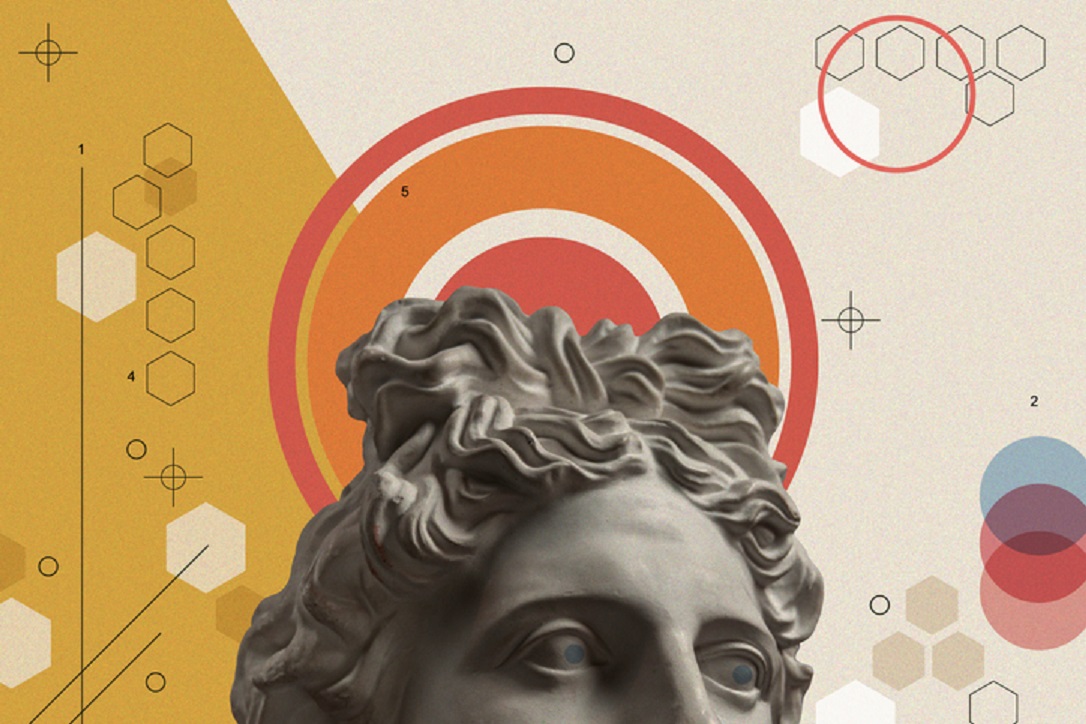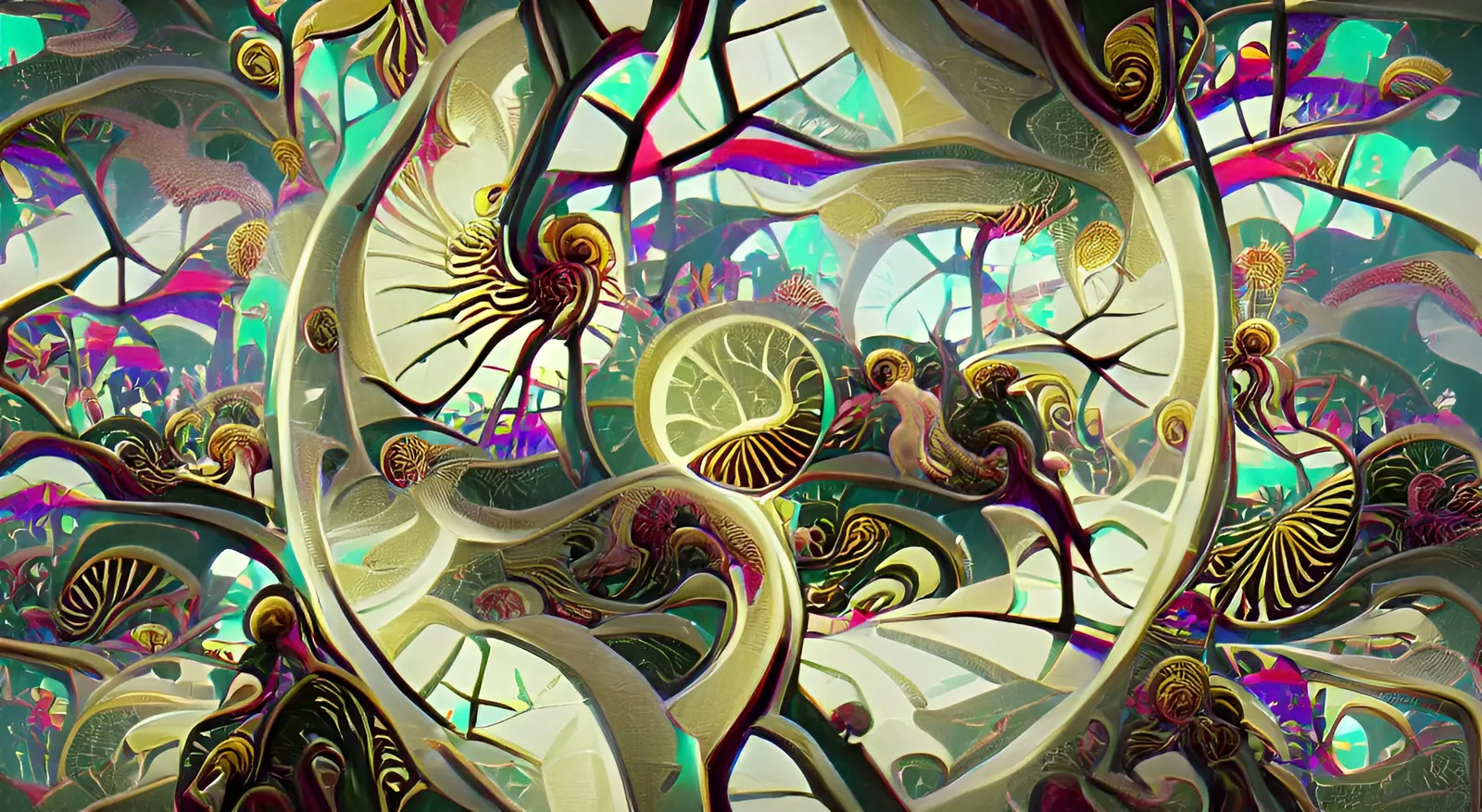We are always under pressure to push ahead to a conclusion, and yet all conclusions are hollow! Every single conclusion there ever was or ever could be is hollow and so – we might ask – what is the big urgency to rush to them? We’re rushing to conclusions (or rushing towards our designated goals) as if there were a pot of gold waiting for us there and yet this is not at all the case. This is very far indeed from being the case; what we get when we reach the finish line isn’t a pleasant surprise but a very disagreeable one – although it generally takes us a while to realise this). ‘Nothing fails like success’, as Alan Watts says. What could be more disagreeable than discovering that the prize which we have been striving for so ambitiously is only a thin facade, a glamorous appearance with nothing at all behind it?
We always feel that there will be a great pay-off once we’d rump to the correct conclusion (or achieve the ideal goal) just as we feel that to not do so will prove to be disastrous – we’re under constant pressure, as we started off by saying, and this is peculiar since the world isn’t made up of ‘goals’ or ‘conclusions’ or ‘fixed destinations’ of any kind. We will never find any goals or conclusions in life. Life isn’t a finite game, where – no matter what our circumstances are – the point is always to obtain a predesignated, predefined outcome, but rather it is a constant movement beyond what we previously understood to be our limits or boundaries. Life is what James Carse calls the infinite game, which is where we are always ‘open to being radically surprised’. Our ‘job’ – so to speak – is to stay open to radical surprise, whilst life as the role of stepping in and providing this surprise!
Clearly there’s nothing we ourselves can do to arrange for ourselves to be surprised, this has to be a job for life (or for the universe, or for the Dao, or whatever we might want to call it). Anything we do ourselves we are always going to know about an advance, obviously, and so this is clearly something in which we can’t have any hand. When we do have a hand in it, that ruins everything, makes sham of everything. To play the infinite game we have to be willing to let reality call the shots, whereas the whole point of a finite game is to have as much control as we possibly can over all the relevant variables. The way to win a finite game is by ensuring that we never are surprised, as Carse says. The infinite game and finite games are mirror images of each other therefore, the former happening as a result of us being interested in being moved (as Carse puts it) by life and the latter being created by our absolute disinterest (or rather aversion) to being moved or touched or influenced by something outside of our control, or outside of our knowledge. Or as we could also say, the motivation to play a finite game is simply fear.
For a player of the infinite game, for something to happen to us that we weren’t expecting and which we can’t understand isn’t just ‘interesting’ to us, it is delightful – what could be more exciting and thrilling than discovering that the world is a bigger place than we thought it to be, after all? On the other hand, if fear is our master then this all works backwards on us – the very last thing we want to learn is that the universe is a bigger place that we thought it was and we will move heaven and earth to make sure this learning never happens. When things don’t happen the way we want them to, or the way we planned for them to, then this is most disagreeable for us. This equals frustration, anger, dismay and corrosive despair. When we fail to be able to control effectively, or fail to obtain our designated goals, then this is seen as a totally disastrous situation. This is ‘negative kudos’, this is the ‘falsification of the ego’.
When we are playing a finite game then getting things to be the way we want them to be is the ultimate ‘happy event’, the ultimate ‘good news’. Successful control produces euphoria and this euphoria is what we are always playing for. We could also express this by saying the ultimate prize, the ultimate ‘thing that we’re playing for’, is finding out that life really is about what we thought it was about, or that the world really is what we thought it was (which is to say, that our theories and beliefs are the right theories and beliefs). Everything we do is orientated towards this end and the fact that everything we do is orientated to finding closure in this way clearly means that we have the perception, either consciously or unconsciously, that when this finally happens then this is going to be the greatest thing ever. Wild excitement is generated. Our perception has been inverted by fear however – what we anticipate as being the greatest thing ever turns out to be the complete reverse of good news. We are constantly shooting ourselves in the foot as a result of our ‘inverted perception’, in other words.
The reason for this is easy to explain – if the truth of the matter is that the world is always bigger than we think it is (and why wouldn’t it be!) then to successfully limit the world to being ‘only what we say it is’ (in our subjective perception at least) is to disconnect ourselves from reality itself, which hardly bodes well for our future well-being and happiness. Since when is being completely alienated from the real world a recipe for happiness? Life when it is lived within the limits that we ourselves have set becomes a joke that we cannot see, a joke of which we are the butt. When we try to control life (which is a perversity) everything works against us, although we don’t understand this. We then become involved in a charade that we can’t see as such. The finite game – we might say – is a perversion of the infinite game.
When we are in Rational Mode (or Finite Game Mode) then the only thing that makes sense to us is pushing towards a conclusion (or what seems to be a conclusion). This seems to be ‘the thing to do’ whilst not to push for it, on the other hand, is quite unthinkable. This can be understood in terms of us being orientated towards our goals and imagining that success here will somehow transform our entire situation, and it can also be understood in terms of what the world means to us. It is – needless to say – true that when we are in Rational Mode we always make sense of the world in terms of ‘static categories’ – pressing for a conclusion in this case means that we want to arrive at a final understanding, an understanding which we don’t ever have to go back on, an understanding that we can feel secure with. We call this ‘the right way to see things’, and we say that when we have the right way of seeing things then this will prove to be the answer to everything. That is ‘the key’, as far as we are concerned – it is our Holy Grail.
There is no ‘right way to see things’ though and that’s the big problem we can’t ever spot. There is no right way to see things and yet we say that there is, and we act consistently as if there is. We are perpetually jumping to conclusions, in other words; we are always jumping to conclusions but we don’t know that we are because the world that is made out of conclusions – hollow as it might be – is the only world we know. It is (usually) impossible for us to sell to see ourselves doing this jumping because the conceptual mind is far too fast for us, like a heavy-duty rat trap with a very powerful spring-loaded mechanism, but we are all the same. If it wasn’t the case that we were permanently jumping to conclusions then we would not have a literal or definite view of the world. We are simply never aware of this happening because as soon as something comes to our attention the conceptual matrix snaps into place – it snaps into place faster than we can see and as a result we think that the predetermined view we have was there all along. We don’t see the narrowing-down and so we think that the world is narrow anyway, we assume that it is narrow ‘all by itself’. We don’t even notice that the world we live in is as narrow as it is; we just assume that this is the way things are supposed to be, and if this isn’t a sad trick, what is? This is the saddest trick of all…
If it so happens that the conceptual mind didn’t put us in a such a stranglehold and we see a view of things that isn’t fixed, definite or literal (i.e. a view that doesn’t correspond to a finite game) we would feel immense pressure to jump to some conclusion or other (be it good, bad or indifferent) and if we took the time to notice what was going on we would see that this pressure is in fact pure fear, pure terror. If we took notice of the process that is happening (and terror isn’t of course very conducive to noticing things) then we would see that we are actually hiding out from wide-open reality in our literal view of things, in our concreteness, in our purely rational approach to life, in our finite games. Our conclusions – of whatever sort – are thus as compulsively attractive to us as they are because they represent an escape from openness. Our fixed conclusions about the world represent solution to the ‘problem’ of the Great Enigma, in other words; our solution to the ‘problem’ of openness is to escape into the hollow abstract world that has been created by thought!
The capacity not to narrow down our view of the world when triggered by fear is what Keats calls negative capability‘; ‘narrowing down’ – on the other hand -is a generic thing, it is a ‘forced march’ which is the same for everyone, and so as a result of our unacknowledged ‘narrowing down’ we become Everyman, just as Jung says. The only ‘non-generic’ (or ‘true’) experience we can ever have is the experience of not-reacting. Reacting is enforced upon us ‘from the outside’, it is in no way volitional or freely undertaken, it is in no way an expression of our autonomy. ‘Reacting’ takes us down a well-worn road that leads away from the truth of things, away from who we really are, away from anything that genuinely matters to us. The pressure that we started off talking about at the start of this discussion is ‘the pressure to escape reality’, ‘the pressure not to be who we are’, in other words. It is the pressure to conform to a false world, the obeying of which we turn around to see as some sort of virtue, some sort of good thing. We call this successful obeying of the rule winning when we’re engaged in finite play! Not reacting to this pressure (the pressure to play the pointless or self-defeating finite game) is the onlyon the other hand, i truly free act we can engage in. This is the only thing that comes out of our true individuality, our actual autonomy. Not-reacting is the only free act we can ever take, but at the same time it is (paradoxically) not an act that is taken by anyone, since ‘reacting’ is not just the act of ‘conforming to a false world’, it is at the same time the act of ‘identifying with a false self’.
Art: behance.net






